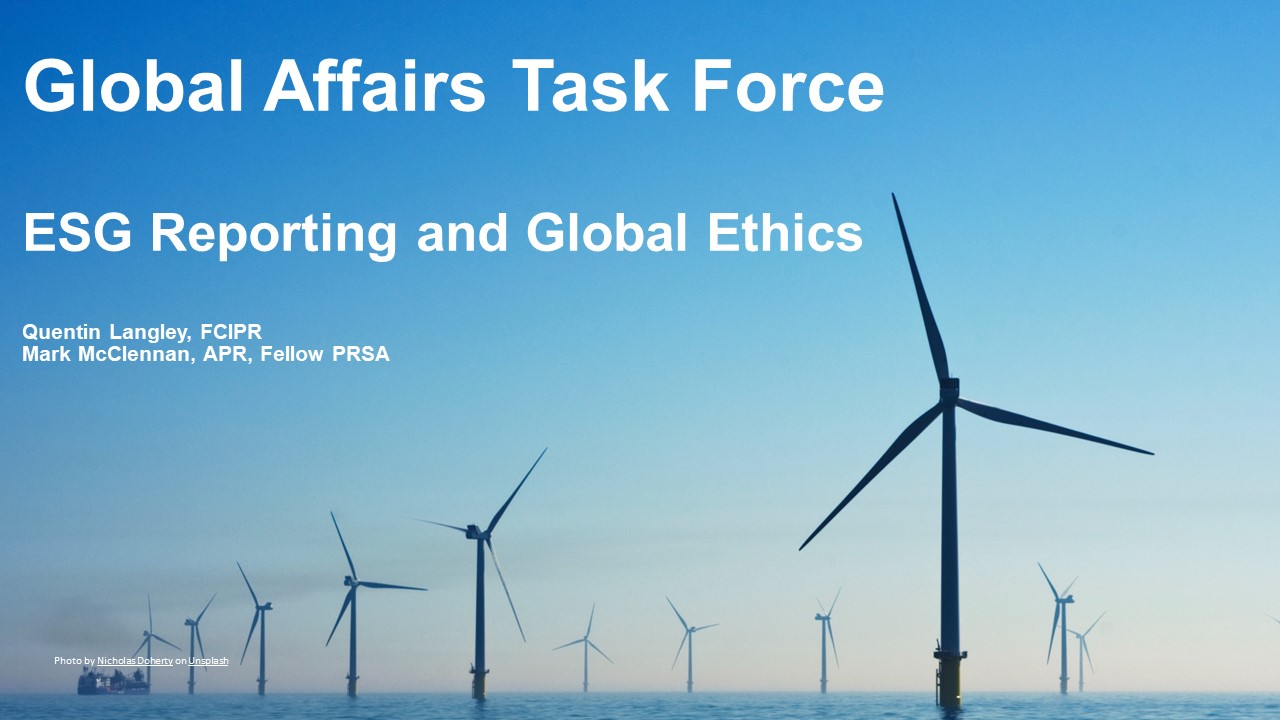Ethics and ESG Reporting: Developments for 2024 and Beyond

Last week, I had the pleasure of speaking about Ethics and ESG reporting at the PRSA International Conference with my esteemed colleague, Quentin Langley.
While I have been living in an AI ethics world for the past year, it is good to take a step back and look at the sea change that is occurring in Environmental, Social and Governance (ESG) reporting. As Erica Salmon Byrne, CEO of Ethisphere, said in my interview with her on EthicalVoices – “ It bothers me tremendously that it’s become politicized because at the end of the day, what ESG is your material non-financial risk factors, and I don’t understand why caring about your material non-financial risk factors is such a big deal.”
But that is a whole other discussion. The fundamental shifts in ESG are the significantly increased reporting requirements in Europe (and to an extent in California) by 2025. Any company that does business in Europe should pay attention – for the rules they are a-changing. Even in the U.S., businesses must start reporting on CO2 emissions, net-zero goals, transition plans and climate-related operational risks.
Today when it comes to ESG reporting, many businesses think of the UN’s 17 Sustainable Development Goals for the “E”. But with the new European Sustainability Reporting Standards (ESRS), 1,100 new data points will soon be required. These requirements will include everything from waste recycling ratios and water withdrawal totals, to day care services, training costs, turnover, and renumeration packages and shareholder votes on executive pay. This will impact more than 50,000 companies.
While the reporting itself will require a much greater investment of time and resources, what is really chilling is how many companies are likely to try to get around it. A 2022 Global Integrity Report from EY found that 18% of board members said they would mislead auditors and regulators and 15% would falsify financial records. The study also found 42% of green claims made online are exaggerated, false or deceptive. That means that we, as communicators, need to push deeper and get to the bottom of any claim.
How do we do that:
- Become as familiar with the new reporting requirements as compliance and legal executives are. Not only will this help protect the brand, it will give you key content to share with stakeholders (or incorporate into your tough FAQs).
- Remember that ESG is about much more than compliance. We need to make sure our brands tell the truth and not use a mass of data to hide issues.
Some other key takeaways include:
- EU law will require guarantees for an organization’s supply chain. This may cause issues for those doing work in countries with a long history of human rights abuse.
- There is increasing skepticism around SG claims. A recent study from Workovia found 90% of investors are skeptical of organizations’ ESG claims. A study from UL went even higher – concluding that 95% of eco-friendly claims are based on irrelevant, weak or non-existent data. Make sure you understand how the claims are made and have the data to back them up.
- With 1,100 data points to report, it is likely even the best organizations will not be doing the best in all of them. Find out where you can improve and integrate that into your crisis response plans.
ESG is evolving and strategic communications professionals need to evolve our understanding along with it to protect our organizations’ reputations and integrity. The road ahead will be more complex, but by asking the right questions and collaborating with legal and compliance, we will be best prepared to help organizations accelerate their commitments, and lead with integrity and purpose.
